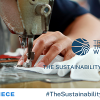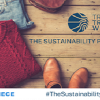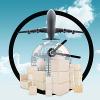Press Releases
Displaying Results 26 - 50 of 61
Commitments to The Sustainability Pledge are gathering speed as signatories and developers of the UNECE-brokered recommendations for improved sustainability and ethical practice in the garment and footwear sector gather for a three-day event on the sidelines of Milan Fashion Week.
Countries across the globe are continuing to move towards a seamless and efficient trading environment, within and beyond national borders, by simplifying and digitalizing formalities in international trading, helping to sustain international trade despite the disruption caused by the COVID-19
Serbia is undergoing extensive reforms to consolidate a competitive market-based economy. The Government considers trade, along with investment, as an essential element to achieving structural transformation and inclusive growth. Reforms accord priority to harmonizing non-tariff measures.
As part
Annually, food in total value of over USD 1.8 trillion is traded between nations and global exports of food have increased on average by seven per cent per year in the last 20 years. In this trade, trust and quality controls are essential to protect consumers and maintain the industry. The exchange
Amidst the COVID-19 pandemic, the importance of efficient trade processes has become clear as a means to allow for fast and safe movement of products, including bringing the life-saving medicines and food products to people, and to reduce the economic impacts of the crisis. In the Kyrgyz Republic,
Asserting and verifying sustainability claims in the garment and footwear sector are set to become easier thanks to a toolkit of policy recommendations, implementation guidelines and standard endorsed by UNECE member States that provide traceability
The trade disruptions caused by the COVID-19 pandemic shook the Kyrgyz economy, which fell by 8.6 per cent in 2020 - for the first time in 26 years, according to the National Statistics Committee of the Kyrgyz Republic. As the country
The safety, security, efficiency, and resiliency of supply chains will benefit from air cargo digitalization, supported by standards developed at UNECE’s UN Centre for Trade Facilitation and Electronic Business (UN/CEFACT).
Public health concerns over COVID-19 are a new
Recognizing the vital importance of mobility and connectivity for sustainable economic development and taking stock of key challenges, UNECE has consolidated its work in this cross-cutting area to help countries leverage its tools to steer recovery efforts towards the Sustainable Development Goals
With fish production estimated to reach 204 million tonnes in 2030, illegal, unreported and unregulated (IUU) fishing costs up to $23 billion every year to countries and affects one in every five fish caught. UNECE member states face these issues both on
Major disruptions in trade flows from the COVID-19 pandemic have come at huge economic and social cost. Building on lessons learned from the crisis, international experts from the United Nations Centre for Trade Facilitation and Electronic Business (UN/CEFACT)
E-government has a key role to play in achieving the SDGs. Governments in the UNECE region are using tools like ICTs, big data, artificial intelligence and machine learning to improve public services, empower citizens and ultimately provide a better quality of life. The COVID-19 pandemic has only
When ships enter and leave ports, vital information about cargoes, dangerous goods, crews, vessel details and many other things has to be exchanged with the authorities ashore. Under International Maritime Organization’s (IMO) so-called FAL Convention
Coronaviruses, including the one responsible for the COVID-19 pandemic, are a large family of viruses that are common in animals, and can occasionally be transmitted to humans – a phenomenon known as “zoonosis”.Ensuring proper controls on the international trade in animals and animal products
Harmonizing and standardizing not only trade procedures, but also the accompanying information flows, can unlock significant time and cost savings. For this, using the same terminology and the same semantics of terms in different languages is crucial.To support this aim, UNECE has today released
Public procurement alone represents 15-20% of global GDP, while procurement commitments under the World Trade Organization’s Agreement on Public Procurement (GPA) have been estimated at around EUR 1.3 trillion. This is enormous purchasing power that can drive investment and innovation towards
Streamlining border crossing and helping traders to access international markets can provide significant stimulus to national economies. A Single Window for international trade is the ideal solution to achieving this; however, fostering the cooperation between government agencies and replacing
The third United Nations Global Survey on Digital and Sustainable Trade Facilitation 2019 has been launched by UNECE and its four counterpart United Nations Regional Commissions (UNRCs) across the globe. The Survey helps to track countries’ progress on a range of measures to make trade more
Internet of Things (IoT) devices are ushering in a new era of efficiency in global trade using sensors and other connected devices. The United Nations Centre for Trade Facilitation and Electronic Business (UN/CEFACT) has recognized the need to study the use of IoT for trade facilitation and the
International standards and harmonized processes can boost trade by enabling countries and companies to cut costs and reduce bureaucracy. The digitalization of these standards brings additional efficiency gains, further multiplying the benefits of their use. UNECE has taken another step towards
Overfishing and illegal, unreported or unregulated fishing (IUU) accounts for one-fourth of the fish resources in the oceans and cost a staggering USD 23 billion. As a result, future fish stocks are at risk of depletion, ocean biodiversity is impacted and the economic security of legitimate
As the world’s second most polluting industry, the textile sector is responsible for a large portion of global CO2 emissions and industrial waste. Exploitative and dangerous working conditions are also widespread in the sector. At the same time, the industry has a complex value chain, with
For over a decade, the UNECE Recommendation 33 on Single Window has been the cornerstone definition for this trade facilitation tool enabling streamlined border-crossing procedures and allowing traders to submit all export-import related information to a single entry point. This definition is
Reducing trade costs is essential for countries to effectively harness trade as an engine for growth and sustainable development. This can be accomplished by tackling non-tariff sources of trade costs and addressing cumbersome regulatory procedures and documentation requirements. Indeed, trade
Countries around the world are moving towards seamless global supply chains. This is one of the key preliminary findings of the Joint United Nations Regional Commission (UNRCs) Survey on Trade Facilitation and Paperless Trade, presented on Wednesday 12 July, at the World Trade Organization (WTO









